Build Rome
-
Tried my hand at Trajan's termae. Not quite satisfactory, but for the time being that's it.
The problem I am facing is that, after speaking with a german researcher, he convinced me that what I posted as the Oppio wing of the Domus Aurea, is just the basis villae, and that the main building was on top and back, having being completely razed by Trajan when he built his termae. So I'll have to try my hand at a work of pure imagination, since practically no evidence exists of what this main building looked like ...
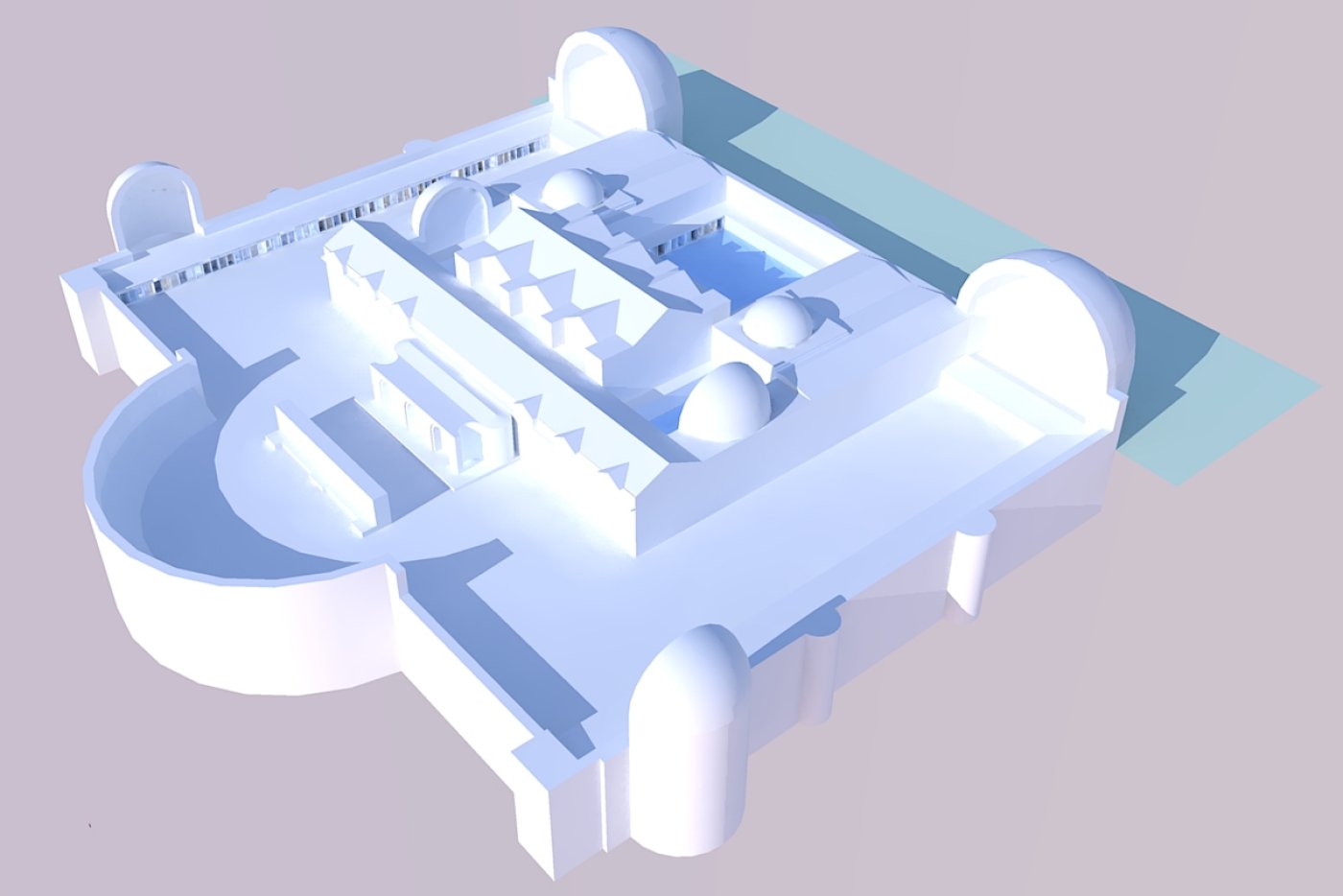
-
Looks cool to me.
As for imagination instead of facts - you need to decide what you want to do. Reconstruct or visualize (and give a clue how it may have looked).
Maybe you could make some distinction between the "probable" and "possible" reconstructions with basic colours or something.
-
I've thought about that, but it's tricky. I think I'll end up by making several projects, and some animations, mixing SU and Poser, maybe Bryce or Kerkithea, inserting some photo and movie scenes of the real thing and excavations etc.
I attach my first try at a sequence, it will get much more complex as it goes. Any advice welcome.
One thing. Is there a way to color lines, or that's possible only for faces?
And is there a way to freeze the project, so that who looks at it can change scenes, zoom pan and rotate, but not modify or edit the objects?
Thanks again
-
@hepf said:
One thing. Is there a way to color lines, or that's possible only for faces?
Window > Styles > In model (the small house icon) > Edit > Edge settings > Color (at the bottom) > Color by material
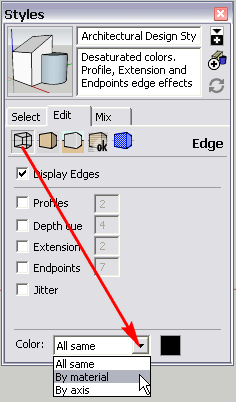
@hepf said:And is there a way to freeze the project, so that who looks at it can change scenes, zoom pan and rotate, but not modify or edit the objects?
Not in SketchUp. There are third party apps you can export the model - like 3DVIA for instance. Then people can see it online. There you can define if others can download your model (i.e. get access to the model itself) or it is only for viewing.
-
Thanks, Csaba. The hint on the lines was very useful. For the other thing, I found that there is a free SU viewer, that is exactly what I was looking for. Very user friendly browser that doesn't allow the user to access or alter the model.
I attach my experiment in architectural imagination. Opinions are welcome and sought for. The two forward branches are real, or at least the french of the academy thought so, there are some evidences from the excavations too. And the large pond at the back of the basis villae is real too. All the rest, the main building, is an invention, no evidences exist. For the round towers I took some ideas from Krause's reconstruction of Villa Jovis, in Capri ...
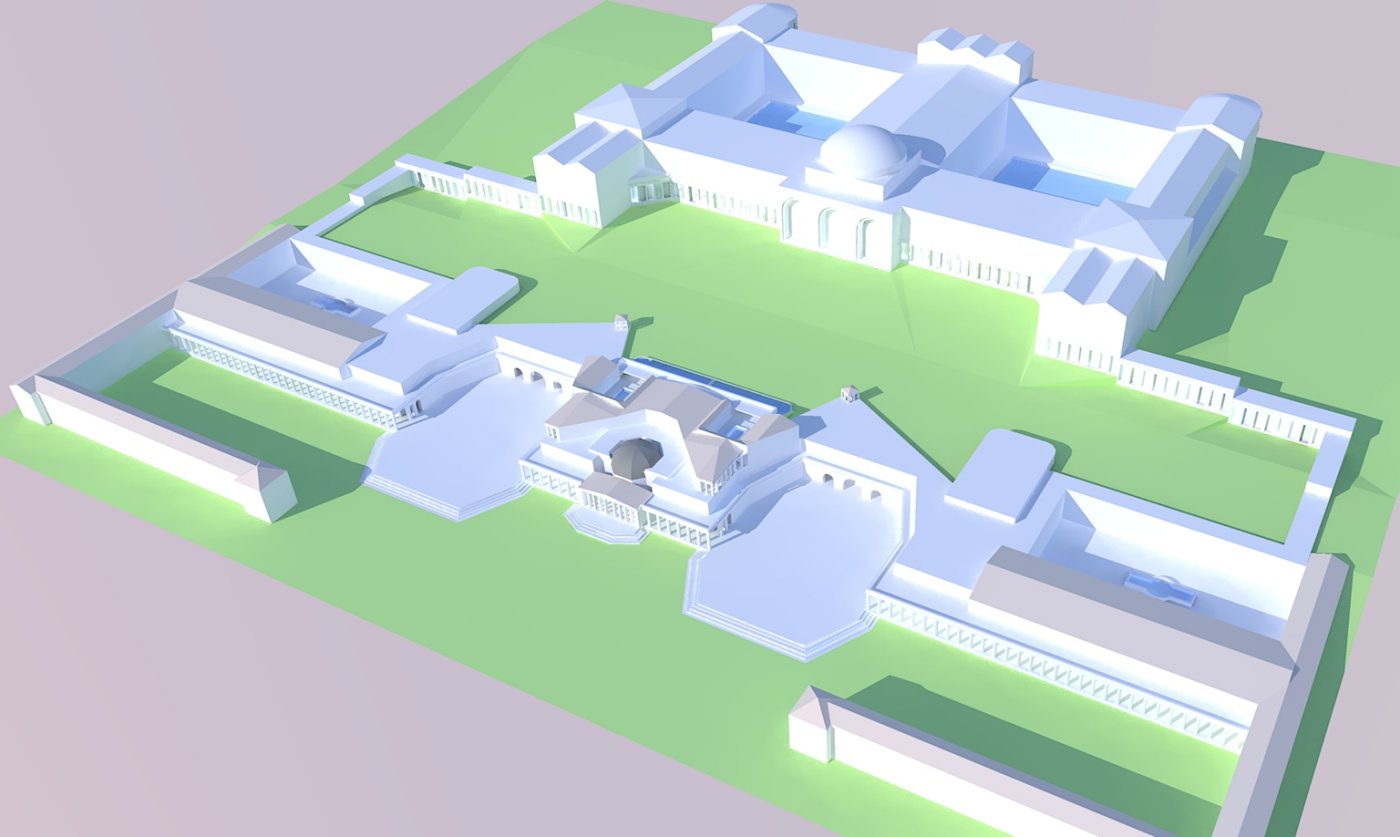
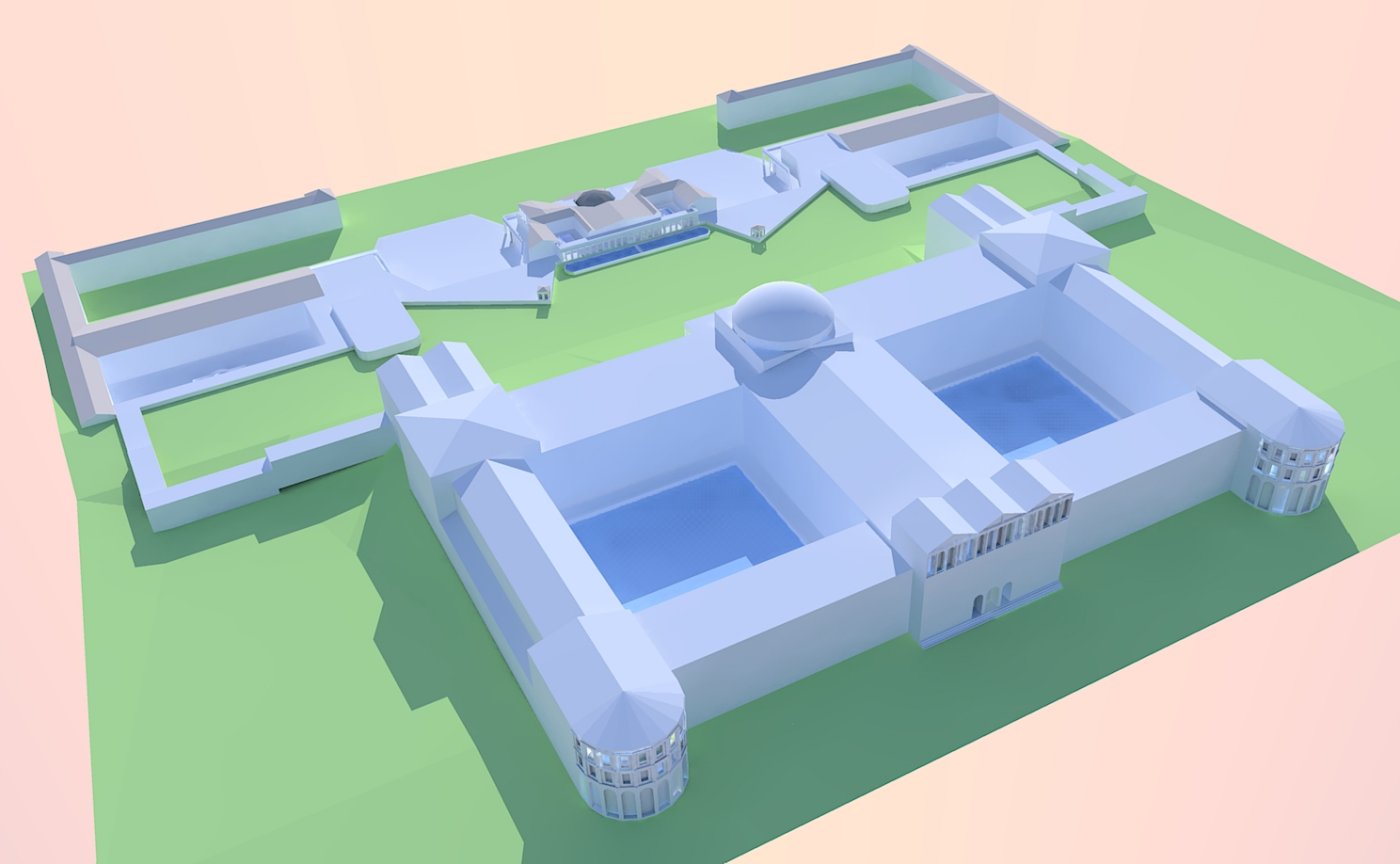
-
Definitely looks good - only be extra careful with any additional, "imaginary" stuff. That can be the most questionable part of the whole reconstruction and you can get the most critiques on those.
-
Hi Marco.
Your work is looking great!
How did your german friend convinced you that the main part of the villa was in the oppio hill?
There are some structures north of the bath that have the same orientation has the domus aurea, but i always thought it made more sense to think that the main building was in the palatine, and the recent find of the rotating room near the temple of heliogabalus seemed to confirm this. With the damnatio memoriae on Nero, the first thing to be destroyed would be the heart of the Domus Aurea, and trying to further erase his memory the Flavian emperors, built the Domus Flavia over it. It seems more likely rather than the Domus Aurea being abandoned for 40 years until Trajan built his baths.
What do you think?
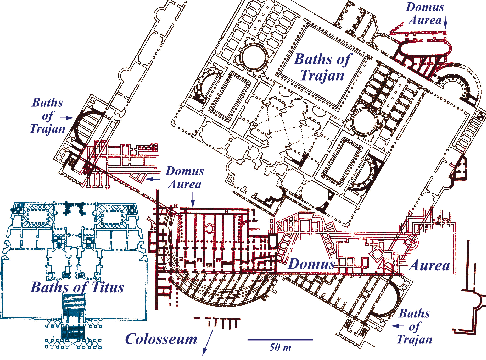
-
You are both right, but I didn't mean the overall main building, if there was one, but the main body of the Oppio wing. I arrived at the same conclusions as Elysium, and here is the result. The back line of the building is pretty certain, because there is another house of Nero's era across the street.
As for the rotating room, it has been placed everywhere, and I am not yet sure that what they found was the real one. It's an impressive find, but it's difficult to decide what it really is. What they say was proof of the existence of ball bearings is rubbish ...
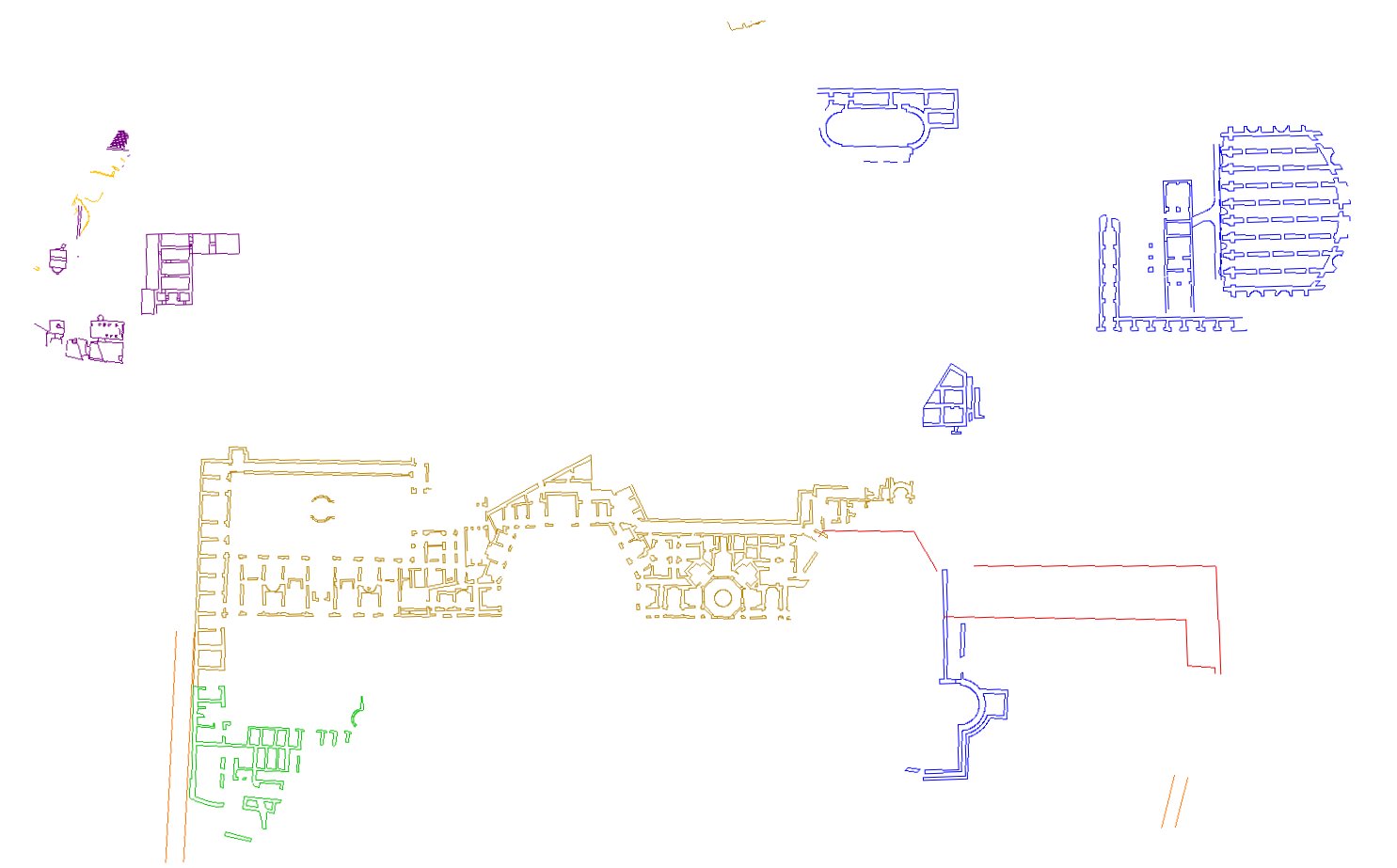
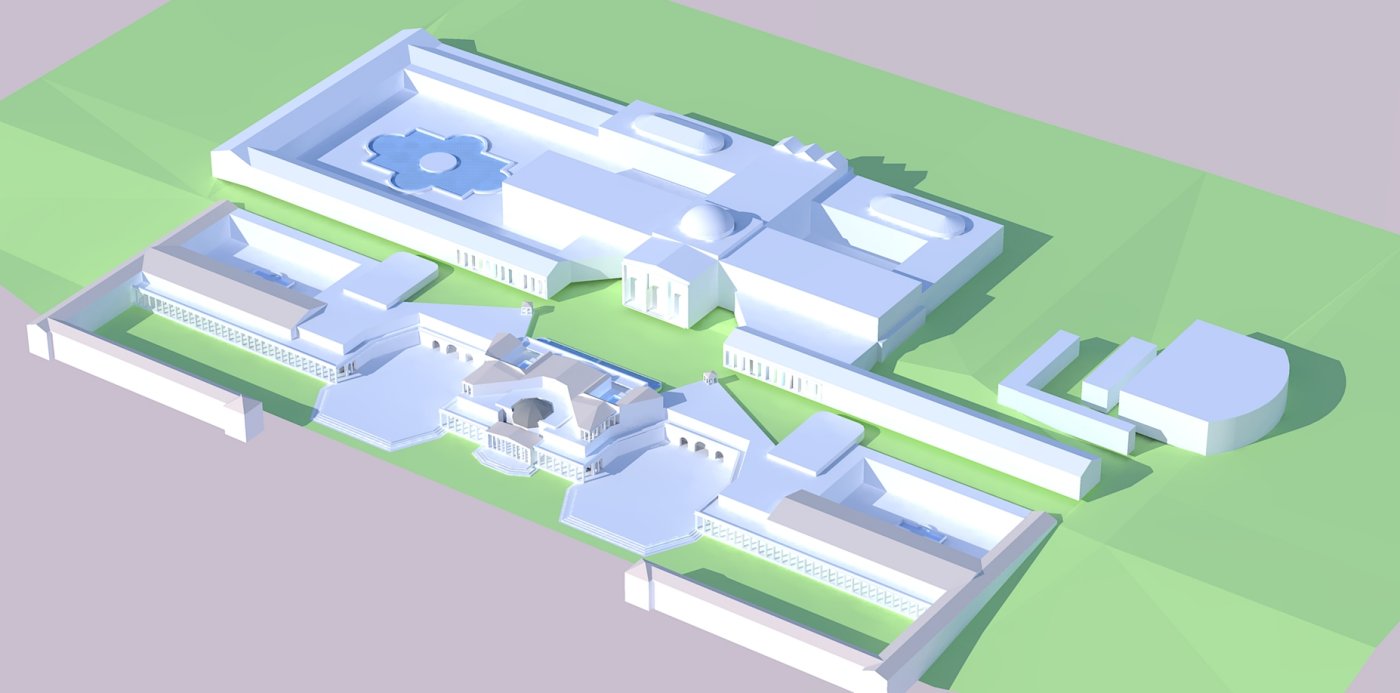
-
Started with Titus's baths. Extruded Palladio's reconstruction, but some things are fishy. I think the whole thing is aligned with the rest of the Oppio wing, they were initially intended (probably) as Nero's private baths. Don't think they were that symmetrical, the slant on the right side doesn't make sense. And the front abutting on the lake shore (or later in front of the Amphiteater)must be rethought ...
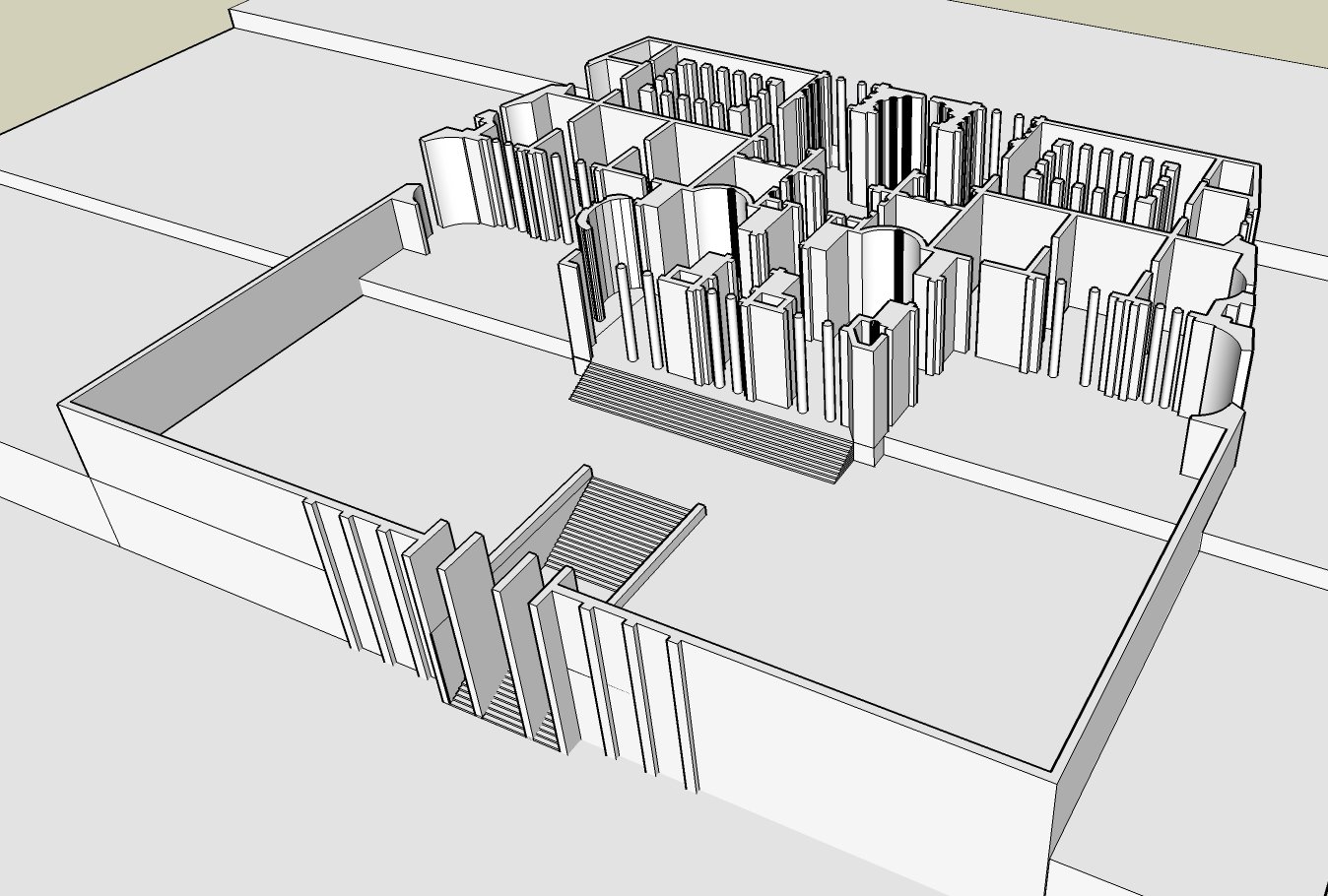
-
Well, it's growing. Now I have to solve the connection between the termae and the lacus, and with the Via Labicana. I'll try a solution with an overpass, it's easy since the huge staircase allows for it, 12 meters of difference between the courtyard and street level. But maybe that's too modern ...
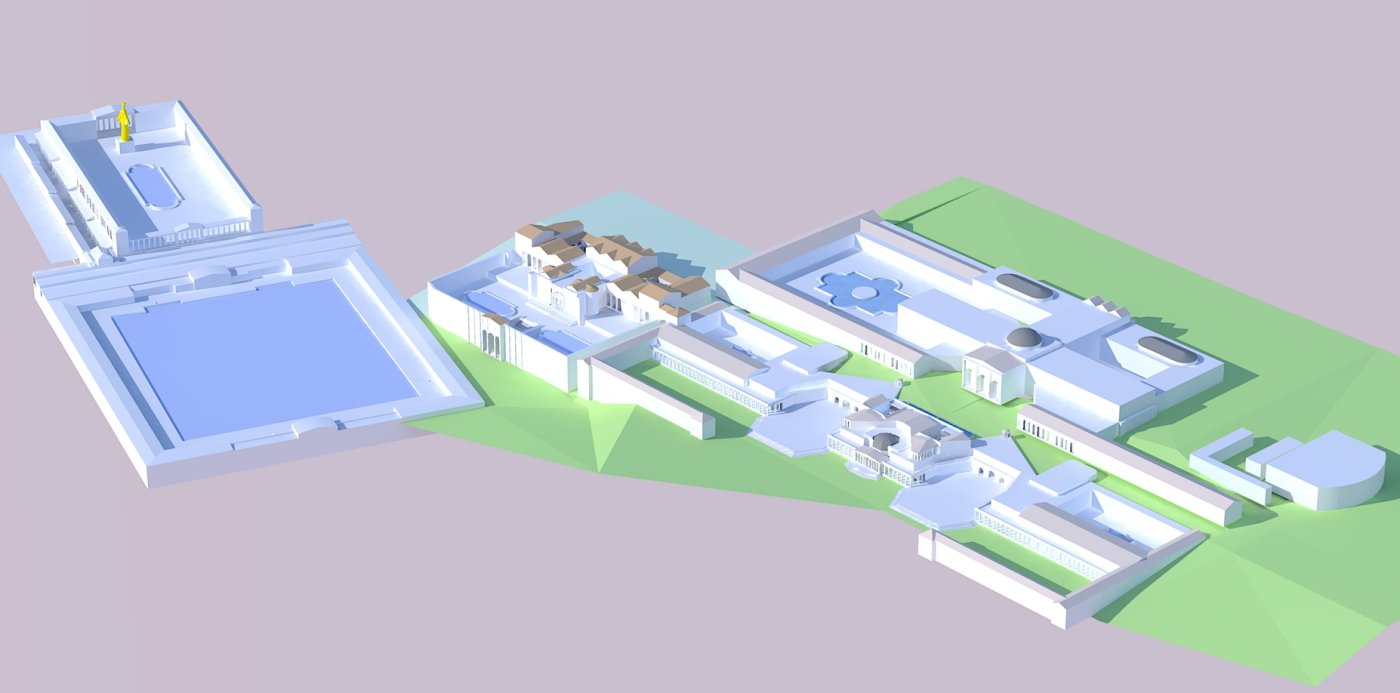
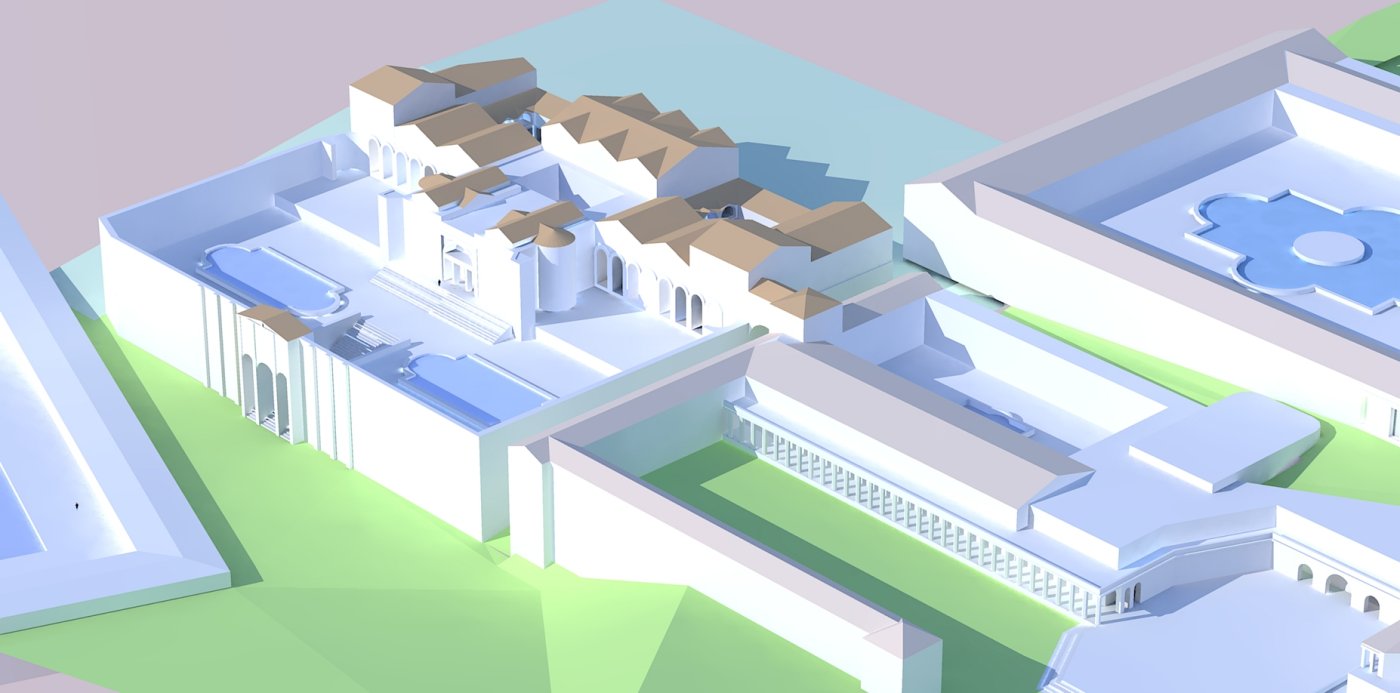
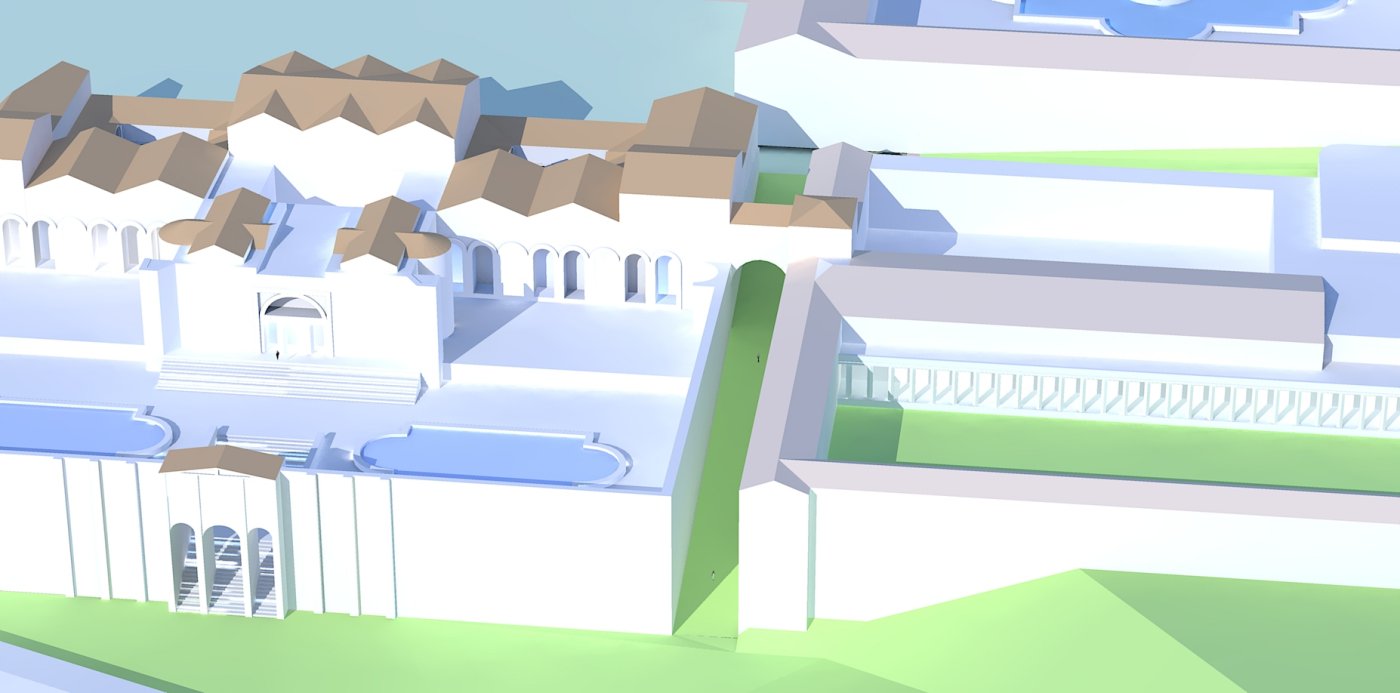
-
Definitely gaining shape, please, keep posting!

-
This is what I had in mind for the connection. The main function is as struts, to keep the terrain with a 12 m. dislevel from falling over. The Via Labicana would go through the double arch overpass. Two lateral ramps go down to street level, and one goes on the overpass to the lake. Of course this is roofless, to show the pathways. Walls and roofs will monumentalize it.
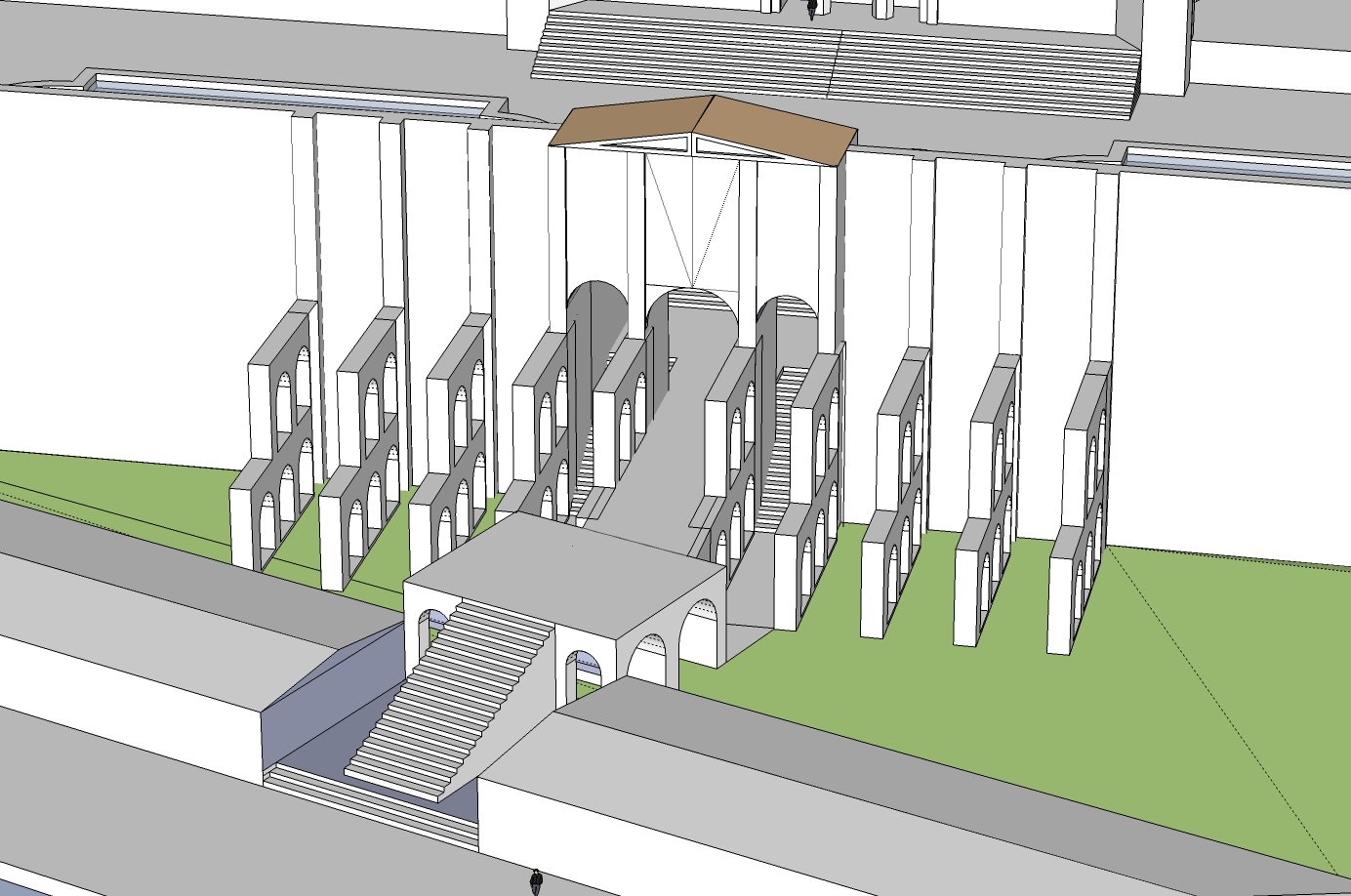
-
I keep reading you (and enjoying). I don't have the time I had some years ago to get involved with you, but at least I can tell you that you are doing it very well


Meanwhile I will continue with a little temple here, a theatre there...

-
Muchas gracias, Pichuneke. Pero te confieso que la cosa se està poniendo difìcil. Ya veremos.
This is what I ended up with for the access to the Termae of Titus. And it took me a lot of work too ...
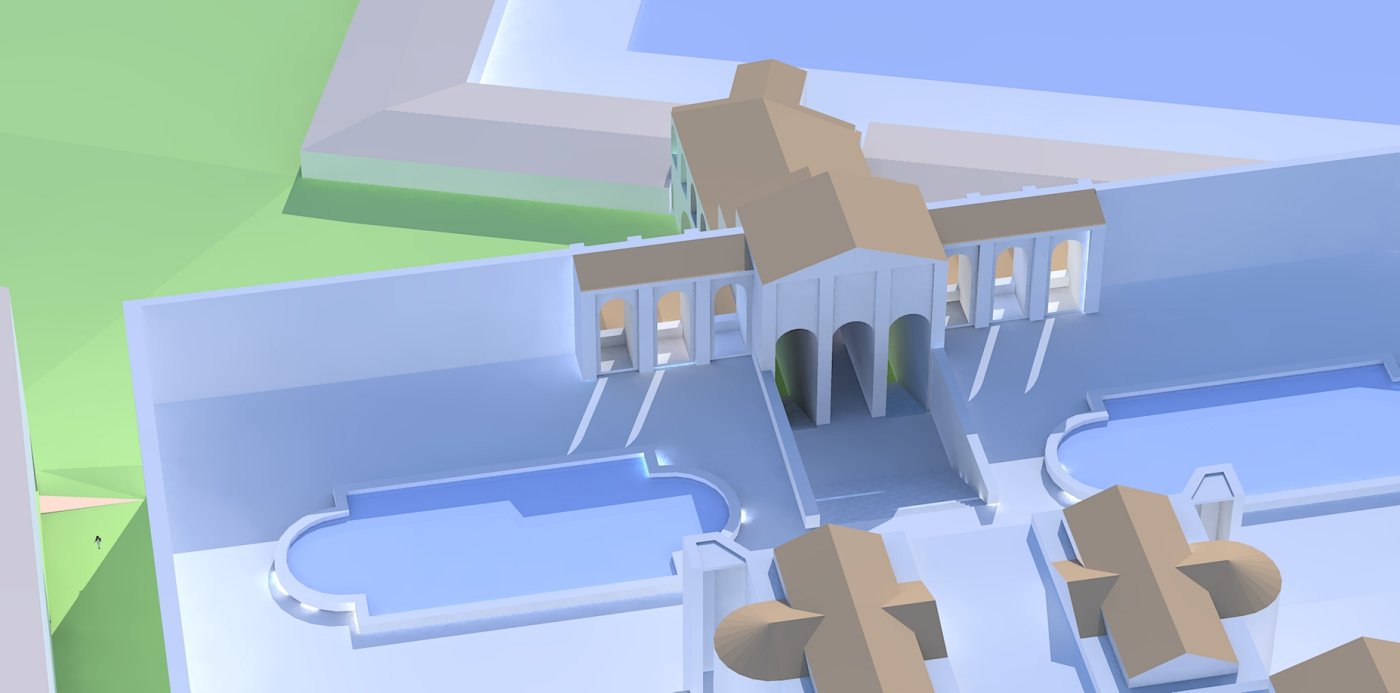
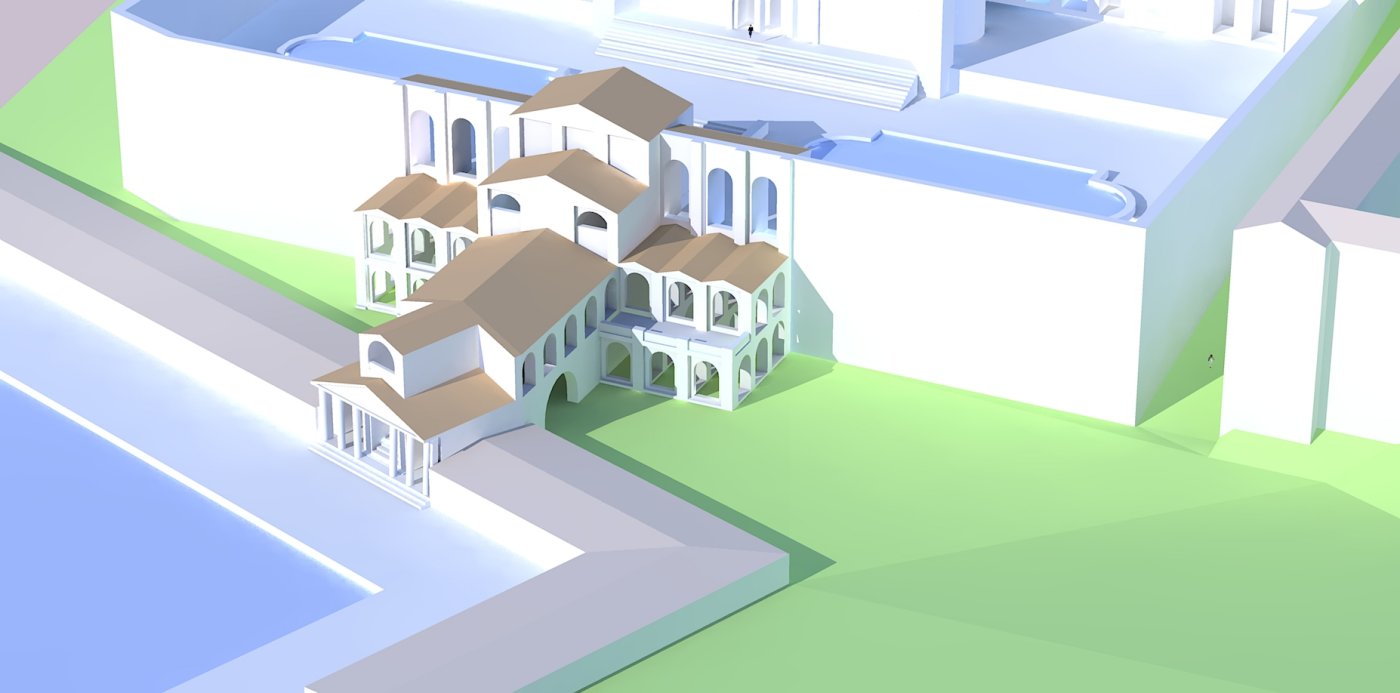
-
Changed some details on the lakefront ...
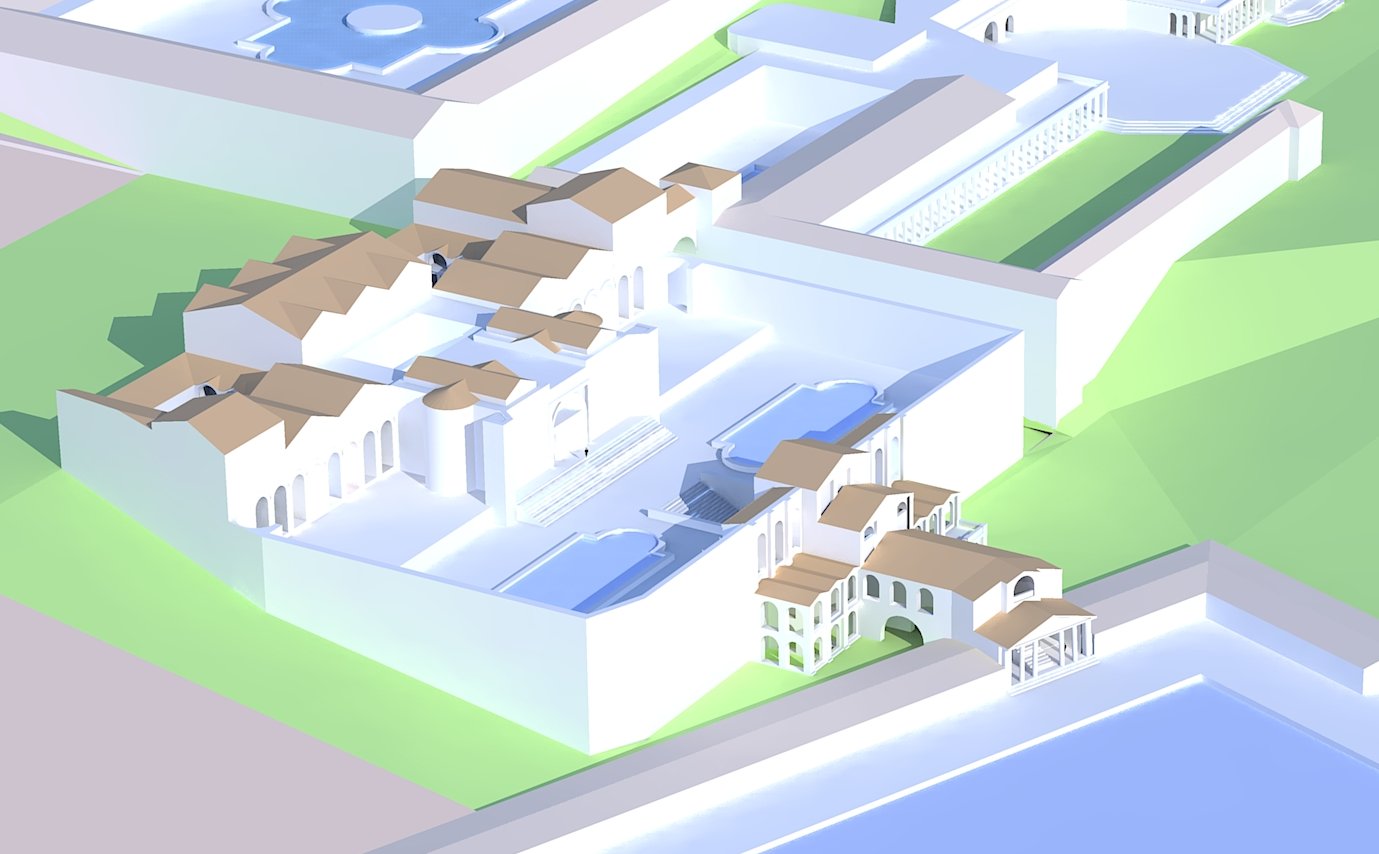
-
What can I say... every time I see a new model from L.VII.C...
Colosseum
-
I started with the Claudianum, and it won't be easy. Nero's mother started the Claudianum as a worship area for her deceased husband Claudius (probably killed by her) but the temple was just growing at the time of the fire. I am now trying to model Nero's situation. It was an important part of the Domus Aurea, sort of a leisure residence, with gardens and water games. He razed what existed of Claudiu's temple; after his death the flavians razed his residence and rebuilt the temple.
The acqueduct Celimontano arrived at its back, and gave it plenty of water. After being used for fountains etc. the water went down to the lake, probably through a monumental fountain. The Claudianum stands at 49 m., the lake at about 21, so there are 28 m. of dislevel. A piece of a marble ship bow with a boar's head was found there, so I imagined a whole stone ship, much like that in the Tiber island.
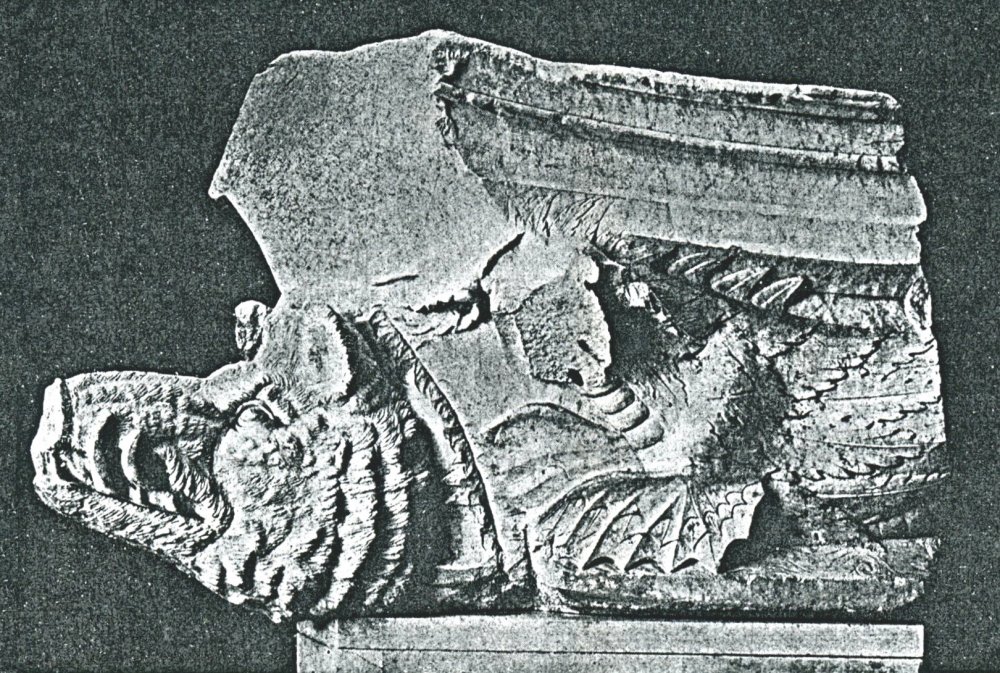
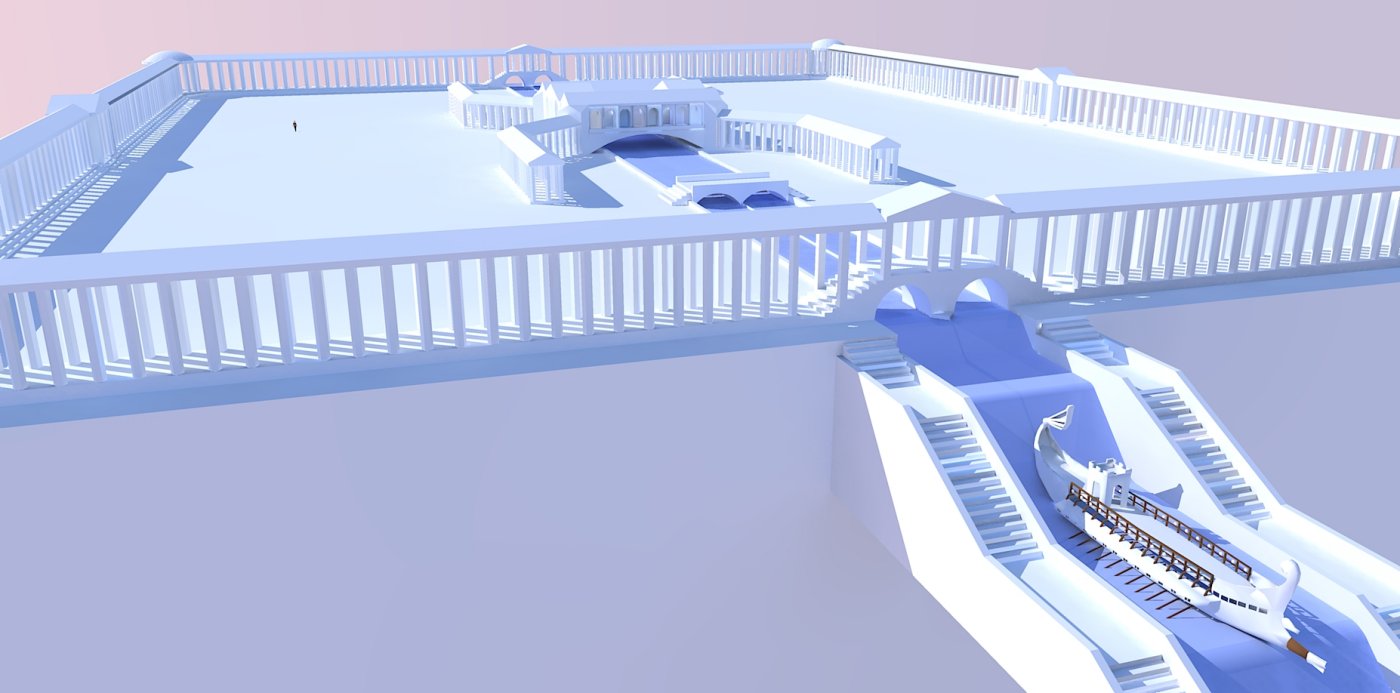
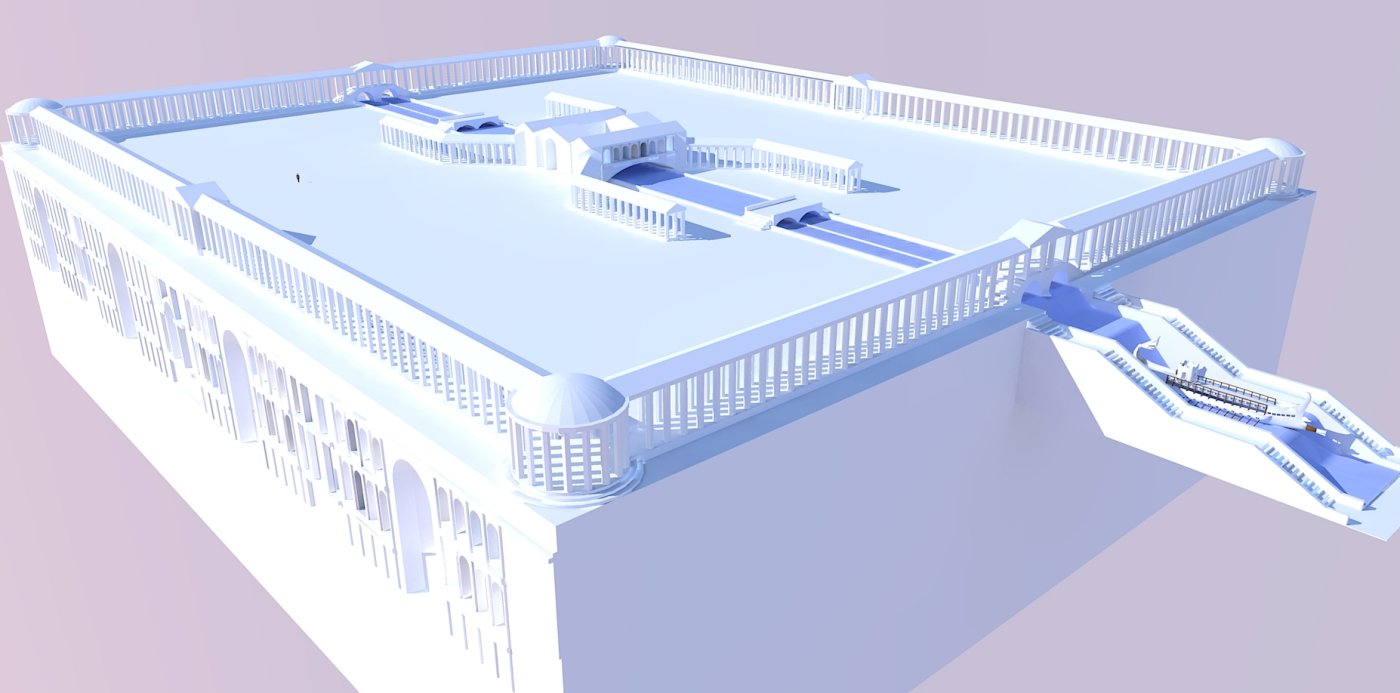
-
And here it is what it looks like when placed where it belongs. Lots of things to revise. The residential part is a bit too spiderlike, the channel too straight, the staircase too imposing, the connection with the lake unresolved, and so on ... Suggestions welcome ...
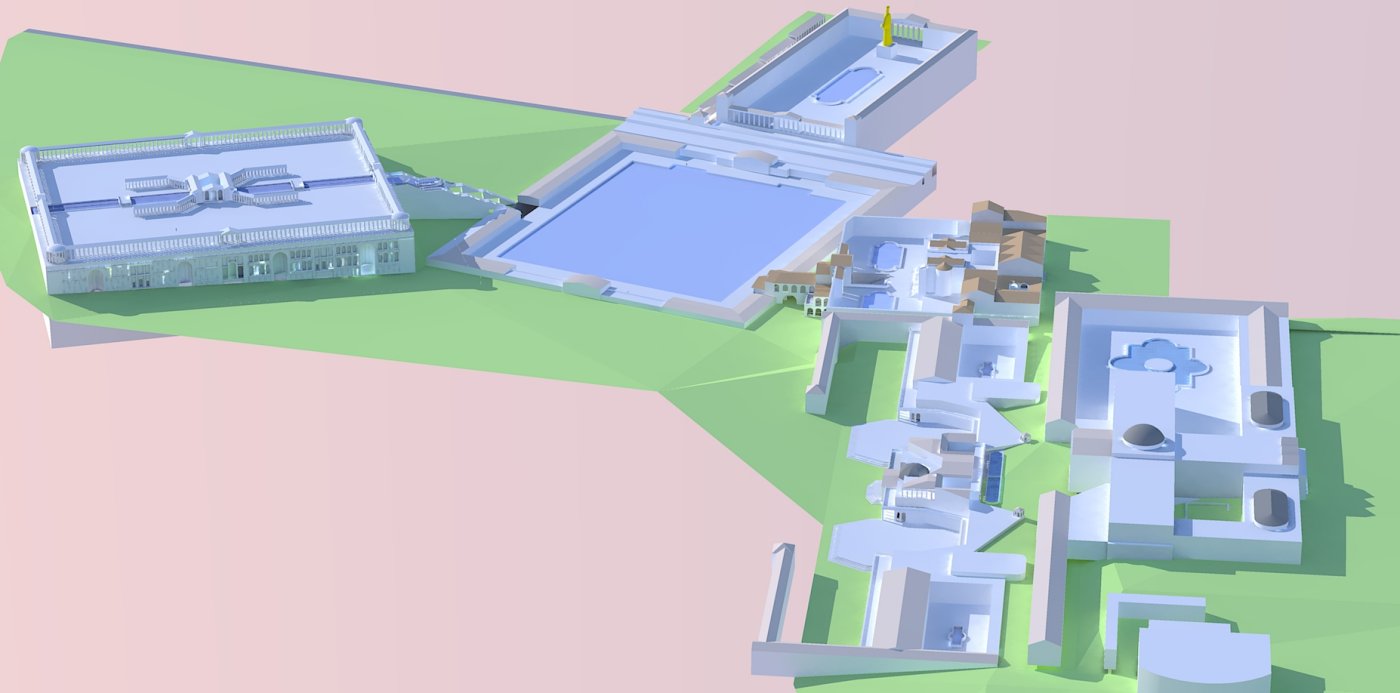
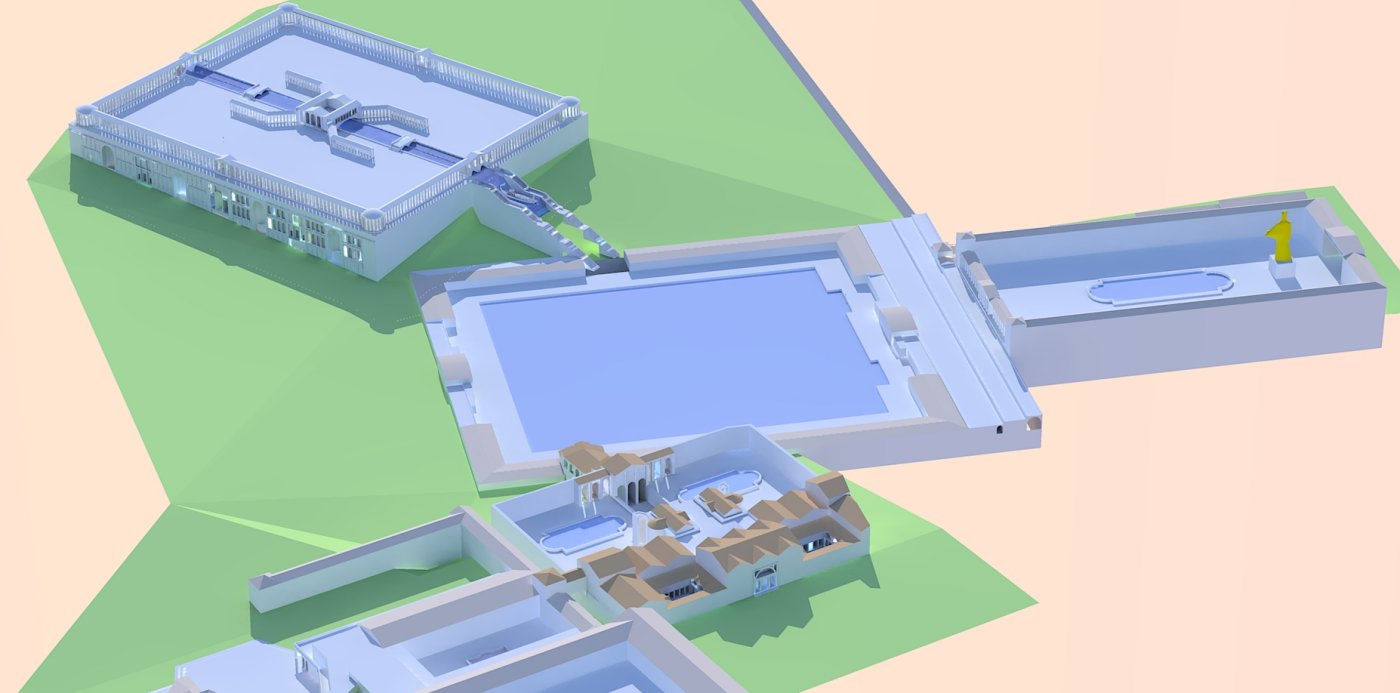
-
A small pool in the connection with the lake? I don't know if there is an archeological basis for that, but it seems the most logical solution to me. You know, connecting the waterfall and the lake.
-
I made an interesting discovery, examining with more attention the map of Lanciani. He registers a XVII century document that shows a sudden change in direction in the retaining walls of the Claudianum, aiming in a perfect perpendicular to the lake. If we take that into account, the access on the lake becomes almost perfectly symmetrical with the access to the termae of Titus. It can't be just a coincidence. I'll work on that.
Thanks Pichuneke (my basic language is spanish too, but let's stick to english), The Coliseum you linked to in your mail is really impressive, like all the works of our friend.
As for the pool, I don't think it fits. What I had in mind were some large stone pipes, spewing water with force into the lake. The water comes from an acqueduct straight from Porta Maggiore, and by association I thougt of the tomb of the breadmaker ...
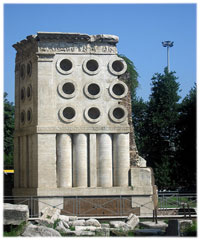
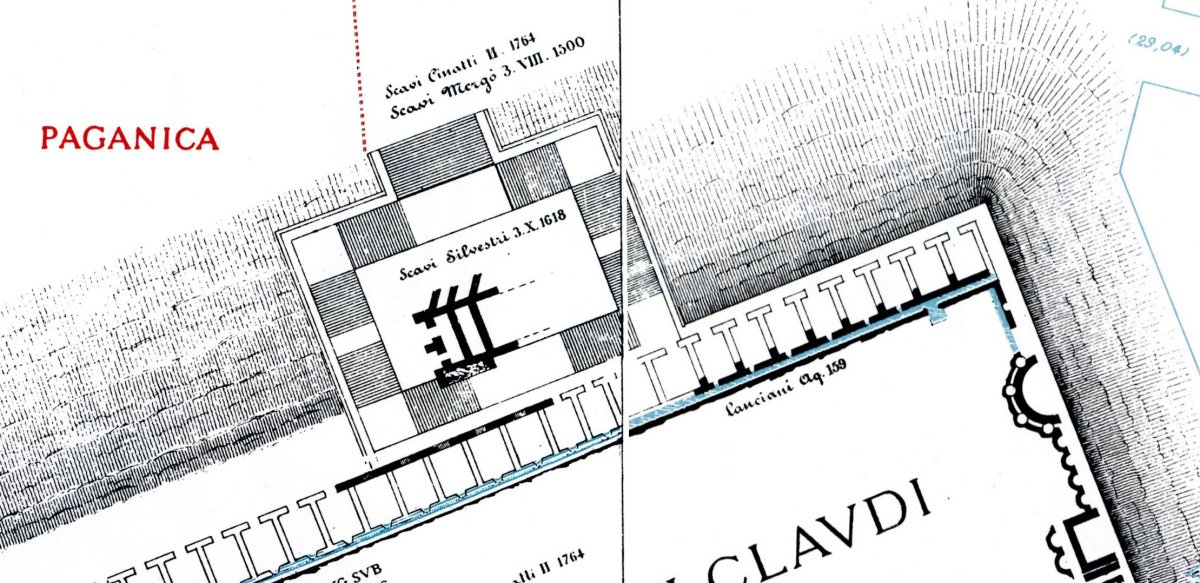
Advertisement







